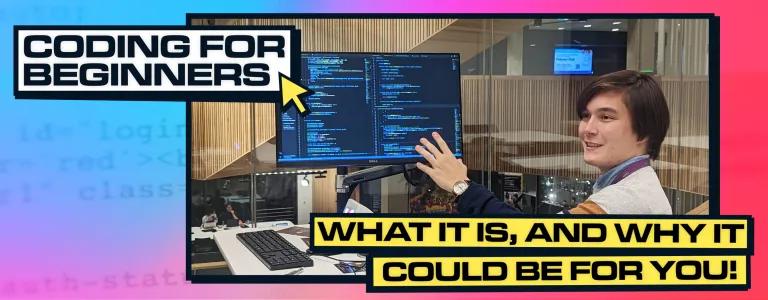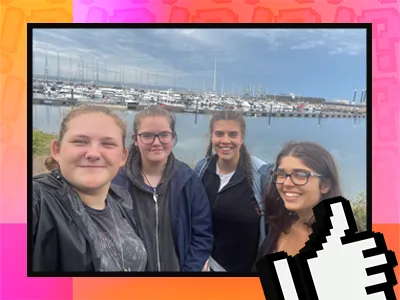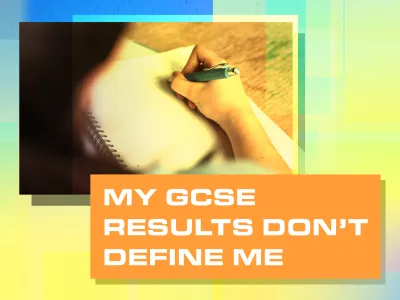
Coding For Beginners: What It Is, And Why It Could Be For You!
Written by Kazki (he/him), who is studying computer science at the University of Warwick. He’s currently a member of the NCS Youth Advisory Board and has previously been a team leader on various NCS away from home experiences.
3 min read
Coding for beginners: What is coding?
Coding means writing a series of instructions for a program to follow to complete a task. Coding allows programmers to build things like websites and apps, or tell computers how to process data in faster ways. For example, I could code a program to list all the multiples of 5 (which would be: 5, 10, 15, 20, 25, …).
Why I recommend learning to code
I like problem-solving. I enjoy the satisfaction of completing a coding problem, especially if it’s a tricky problem or one where I‘ve struggled. Being able to finally complete the problem feels really rewarding, and overcoming new challenges is one of the best ways to improve at programming and problem-solving.
How I started coding
I first had the opportunity to code at my old secondary school and I enjoyed it. I took computer science for GCSE, and then at A Level. The stuff we did back then was not too challenging, and the freedom to get the computer to do anything you wanted (as long as you programmed it) was exciting.
Why you should consider learning to code
The world of coding can open the door to so many opportunities, and here are my three big reasons why you can benefit from learning to code:
1) Get a great job. Experience in coding can be a secret weapon to landing jobs. Even having some basic experience in coding can help you get your foot in the door. Whether you're aiming for a career in software development or something entirely different, the ability to code shows your intellectual capability and adaptability! From what I've seen, even if a job doesn’t explicitly require coding skills, having some past experience in it can set you apart from the crowd.
2) Develop your skills. Coding doesn't just help you become a coder, it enhances a wide set of skills. Learning to innovatively write code helps you develop problem-solving, critical thinking, attention to detail, creativity, and resilience — especially when it takes multiple attempts to get something to finally work!
3) Have fun and make new friends. Coding is not all about work, it can be for play too! In the past I have joined forces with my friends to take part in coding challenges at university. It's a race against time, brainstorming solutions, and developing algorithms to solve complex problems. Often there are prizes and free pizza to further fuel everyone's race to coding success!
How to start coding
It’s never too late to start learning to code, and practising regularly is a good habit. W3Schools is a great online resource where you can learn the basics of coding in various computer languages.
I also recommend just checking out YouTube videos, as there are countless tutorials on all sorts of topics, from coding for beginners to ones on more niche languages and frameworks.
Like everyone else, I started out as a beginner in coding. But I recently had the proud achievement of making a graphical Air Traffic Control Simulator in Java. I did this for my third-year university dissertation project, and it took many months to build. In my simulator, the user is able to control air traffic (planes) both within the airspace and within an airport — the aim is to move the traffic to where it needs to go safely and efficiently. To create the final solution, I wrote over 5,000 lines of code!
Find out more about coding for beginners
It’s currently National Coding Week, (18 to 24 Sept) which aims to help people learn and share their digital skills. You can check out the Coding Week site here, and this blog about learning to code might give you some inspiration too.




